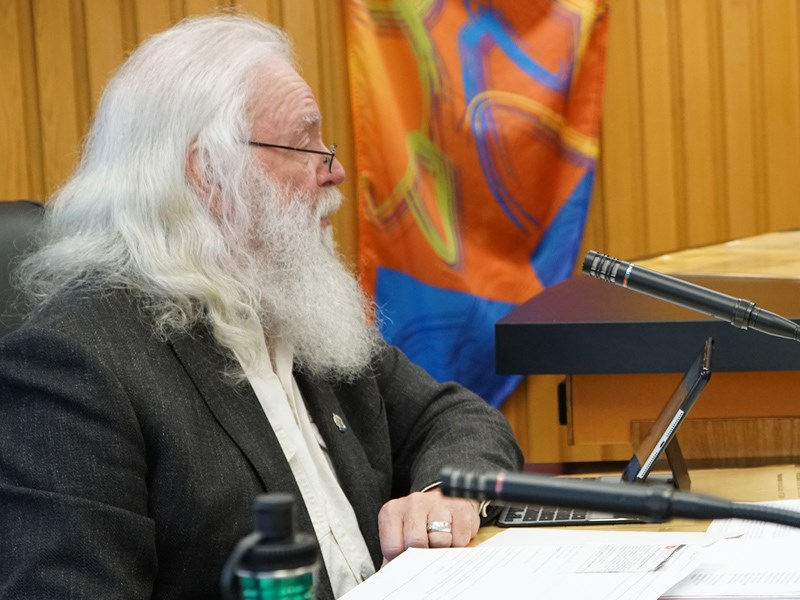City of Powell River Council gave its first three readings to the tax penalty bylaw for 2020.
At the April 23 council meeting, councillors considered the bylaw to establish property tax penalty dates that are later than in a typical tax year.
Councillor George Doubt, who chairs the finance committee, said the bylaw’s intention is to change the city’s property tax regime from what it has been in the past to a special consideration for the COVID-19 time the world is in.
He said tax penalties apply to those who do not pay their property taxes, be they residences or businesses, on time. Normally, a 10 per cent penalty would apply after the July 2 deadline has come for tax payment, said Doubt, and that would be “a pretty significant penalty.”
“In light of the fact that there may be more people who feel pressured paying their taxes this year, we are extending the time when the first penalty applies, to October 1,” said Doubt. “It will be a five per cent penalty. Then, there would be another penalty that would come up in December, which would be another five per cent.”
Doubt said the bylaw would have a minimal impact on the city’s finances in terms of a decrease in the penalties income the city could expect to receive. That amount in a typical tax year is $50,000 to $60,000, and that would be reduced under the new bylaw, according to Doubt.
“This bylaw will give a break to taxpayers and allow them to pay their taxes at the end of September if that is easier for them to do, or delay it until December with a penalty that is reduced from what it was before,” said Doubt.
He said this is part of the city’s taxation strategy to deal with COVID-19 and the impact it is going to have on taxpayers.
The chief financial officer (CFO) is working on a report for council that will talk about projected decreases in revenues the city could expect to see from a variety of fees and charges that the city would ordinarily collect under normal times, said Doubt. These would include fees and charges from operation of the arena and swimming pool at Powell River Recreation Complex. The CFO would be looking at what the decreases in income might be, and what the city is going to forego.
“We are also looking seriously at the opportunities the province has come up with last week to change the borrowing regulations to allow the city to borrow over a longer period of time, to borrow interest-free from some of the reserve accounts,” said Doubt. “We are looking closely at which of those reserve accounts the province is going to allow the city to borrow from.
“We need to do everything we can to keep the city’s debt as low as possible. We don’t want to just kick this can down the road. We want to continue to provide services to the city.”
Doubt said the city is getting suggestions from taxpayers about what could be cut. He said when he thinks about that, he looks at the city’s strategic priorities, such as sustainability, economic revitalization, social planning and action and community engagement. City council has spent some time setting priorities previously and Doubt said he thinks as council looks at the budget moving forward, it needs to think about those items.
“I want to make sure we can stay in a balanced financial situation,” he added, “while in my view, maintaining as many services as we can that we provide the city.”



